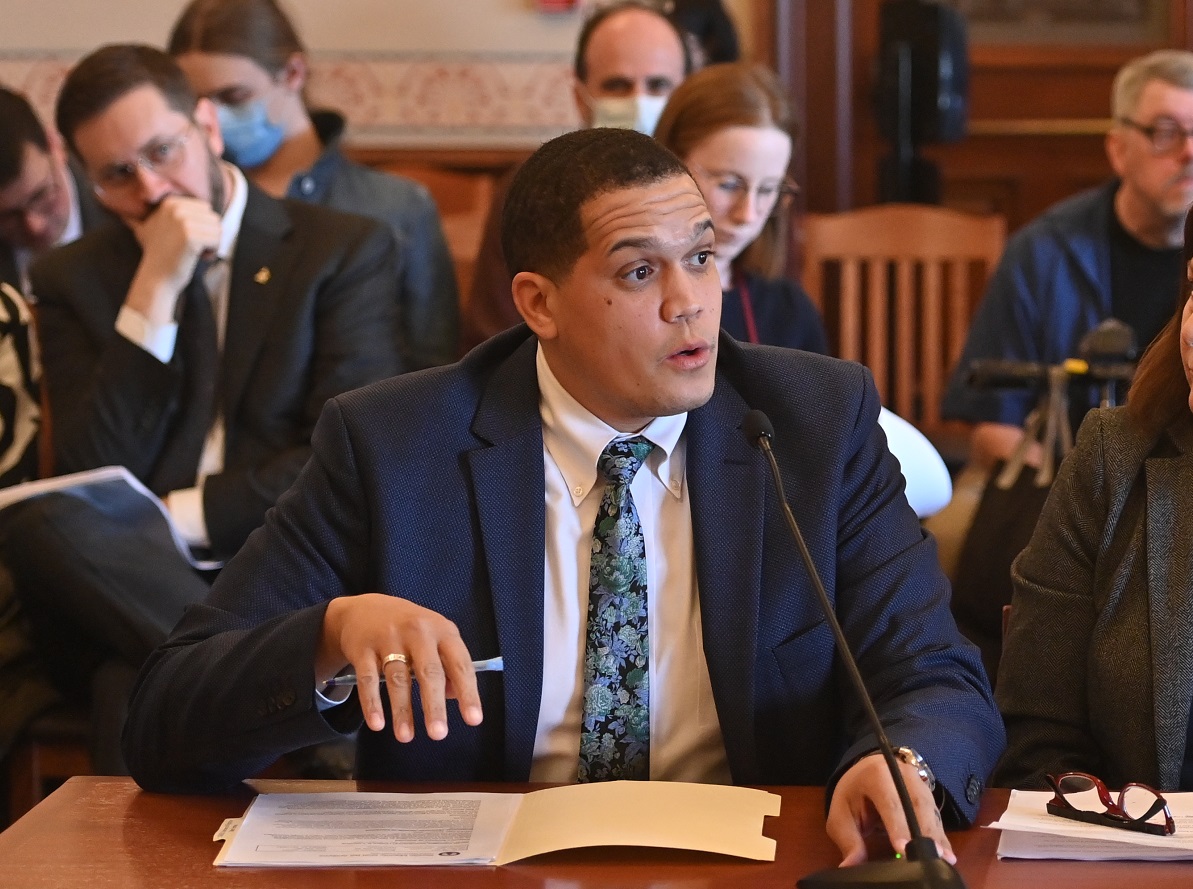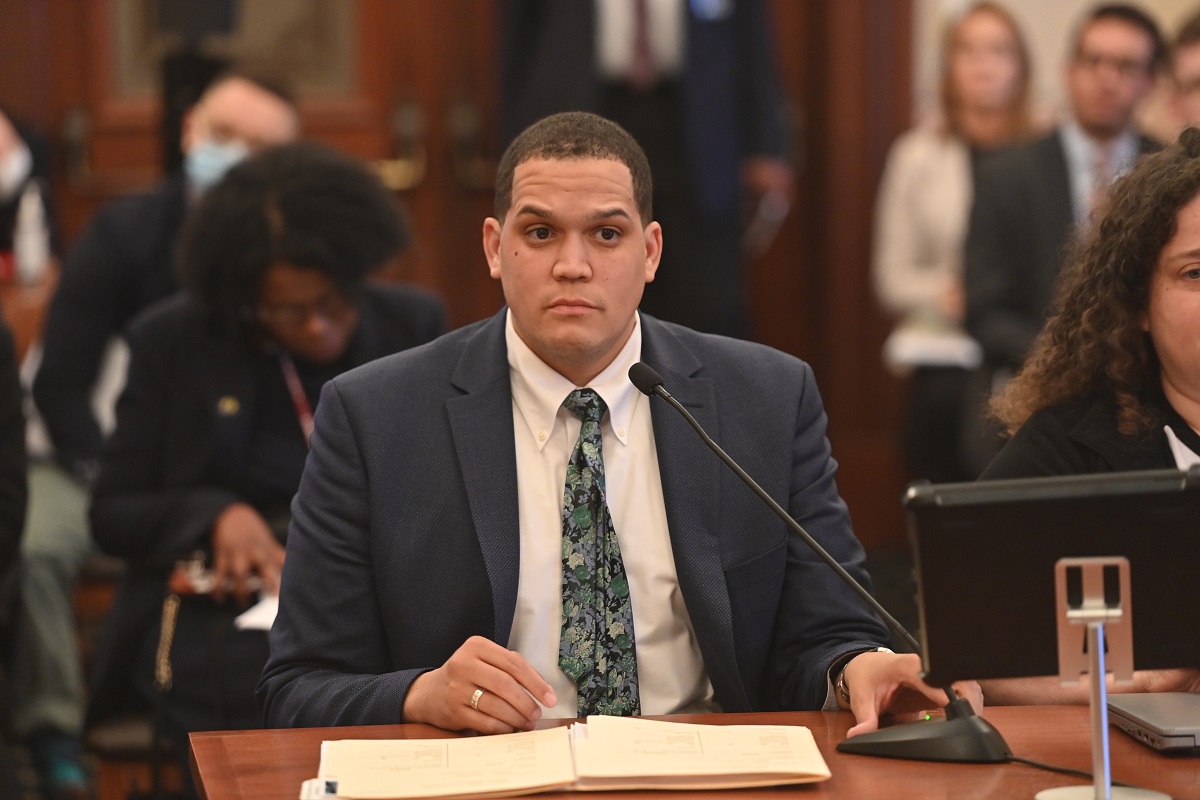- Details
- Category: Press Releases
SPRINGFIELD – I had the honor of speaking at the Raise the Floor Rally in Springfield on Thursday. Illinois must remain a labor-friendly state for every individual in our workforce. The Work Without Fear Act sends a clear message that our state values the dignity and rights of every worker no matter who you are or where you come from.
Esta la traducción del discurso que dio el Senador Estatal Peters en la manifestación:
Read more: Peters Speaks at Raise The Floor Alliance Rally In Springfield
- Details
- Category: Press Releases
 SPRINGFIELD —To further streamline expungement proceedings, State Senator Robert Peters advanced a measure out of the Senate Special Committee on Criminal Law and Public Safety on Wednesday making record expungement a smoother process for individuals and the court systems.
SPRINGFIELD —To further streamline expungement proceedings, State Senator Robert Peters advanced a measure out of the Senate Special Committee on Criminal Law and Public Safety on Wednesday making record expungement a smoother process for individuals and the court systems.
“The expungement process is already challenging,” said Peters (D-Chicago). “At the very least, we can make it easier for individuals who have started their journey to rehabilitate by streamlining the steps they need to take for a fresh start.”
Read more: Peters streamlines expungement and related court proceedings
- Details
- Category: Press Releases
 CHICAGO —In an effort to safeguard the rights and well-being of the state’s youngest citizens, State Senator Robert Peters passed legislation out of the Senate Labor Committee on Wednesday.
CHICAGO —In an effort to safeguard the rights and well-being of the state’s youngest citizens, State Senator Robert Peters passed legislation out of the Senate Labor Committee on Wednesday.
“This initiative is about taking care of issues we have seen associated with child labor,” said Peters (D-Chicago). “It lays out updated guidelines that look out for our kids – their rights, their schooling, and their futures.”
Read more: Peters strengthens child labor laws to protect youth from exploitation
- Details
- Category: Press Releases
 SPRINGFIELD – State Senator Robert Peters passed legislation through the Senate Judiciary Committee on Tuesday to help more survivors of domestic and sexual violence know their rights and options for safe housing.
SPRINGFIELD – State Senator Robert Peters passed legislation through the Senate Judiciary Committee on Tuesday to help more survivors of domestic and sexual violence know their rights and options for safe housing.
“This legislation will help more survivors understand their housing rights in Illinois,” said Peters (D-Chicago). “By ensuring tenants are aware of their rights, we are empowering them to access the support they need.”
Read more: Peters advances bill to inform domestic violence survivors of housing rights
More Articles …
- Peters introduces fast-track to Montessori educator certification in Illinois
- Peters pushes for more fair and supportive justice system for young individuals
- Peters’ bill banning employer-led political and religious meetings passes committee
- Peters advocates to advance the rights of those impacted by domestic violence
Page 25 of 91




